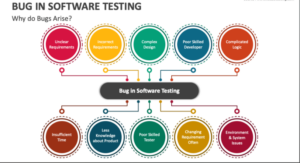Introduction
In the world of data management, SQL (Structured Query Language) plays a crucial role, especially when dealing with complex data operations. One powerful feature of SQL is the Stored Procedure. This blog post will dive into what SQL Stored Procedures are, their advantages, and how they can significantly enhance your data manipulation capabilities. If you’re looking to deepen your understanding of SQL, our SQL Online Training Course is an excellent starting point!
What is a SQL Stored Procedure?
A Stored Procedure is a precompiled collection of SQL statements that can be executed as a single unit. These procedures are stored in the database and can be called whenever needed. The primary purpose of using stored procedures is to encapsulate repetitive tasks, promote reusability, and improve performance.
Benefits of Using SQL Stored Procedures
- Performance Improvement: Stored procedures are compiled once and stored in the database, which reduces execution time.
- Security: They provide a layer of security by restricting direct access to the underlying tables.
- Code Reusability: You can write a procedure once and call it multiple times from different applications or user queries.
- Maintainability: Any changes to business logic need to be made only in the stored procedure rather than in every application that uses it.
Real World Example: Using Stored Procedures
Imagine a scenario in an e-commerce database where you need to retrieve customer order details frequently. Instead of writing the same SQL query every time, you can create a stored procedure.
Step-by-Step Guide to Creating a Stored Procedure
Here’s how to create a simple stored procedure that retrieves order details:
codeCREATE PROCEDURE GetOrderDetails
@CustomerID INT
AS
BEGIN
SELECT OrderID, OrderDate, TotalAmount
FROM Orders
WHERE CustomerID = @CustomerID;
END;
Calling the Stored Procedure
You can execute the stored procedure with a simple command:
codeEXEC GetOrderDetails @CustomerID = 1;
This procedure encapsulates the logic for retrieving order details, making your SQL code cleaner and more manageable.
Best Practices for SQL Stored Procedures
- Keep it Simple: Aim for a single responsibility within your procedure to enhance readability.
- Use Parameters: Pass parameters to make your stored procedures dynamic and reusable.
- Error Handling: Implement error handling to manage exceptions effectively.
Industry Statistics and Case Studies
According to a recent study by Forrester Research, companies that implemented stored procedures observed a 30% reduction in execution time for repetitive database queries. Moreover, IBM reports that using stored procedures can lead to up to 50% less network traffic since the SQL code is executed on the server rather than being sent over the network.
SQL Online Training: Enroll Now!
If you’re keen to master SQL and its functionalities, including stored procedures, our SQL Online Training Course offers comprehensive coverage of essential concepts. You’ll engage in hands-on learning, allowing you to practice writing stored procedures and gain valuable experience.
Related Resources
- Understanding SQL Functions
- Mastering SQL Joins
- Data Security in SQL Databases
Conclusion
SQL Stored Procedures are a vital tool for any data professional. They enhance performance, security, and maintainability, making them an essential part of modern database management. By mastering stored procedures through our SQL Online Training, you will gain the skills necessary to handle complex data operations effectively.
Key Takeaways
- SQL Stored Procedures encapsulate SQL statements for reusability and efficiency.
- They enhance performance and security while simplifying code management.
- Enroll in our SQL Online Training Course to gain hands-on experience and deepen your SQL skills.
Call to Action
Ready to take your SQL skills to the next level? Enroll in our Best Sql courses for Beginners today! Dive into practical applications, and gain expertise that will set you apart in the job market. Let’s start your SQL journey together!






























